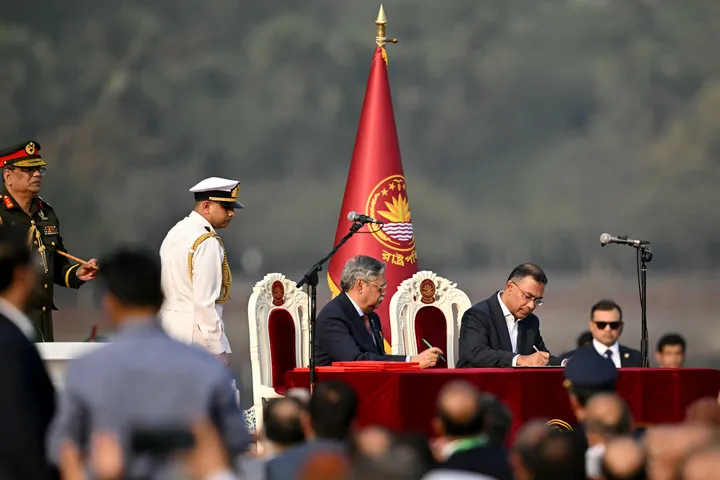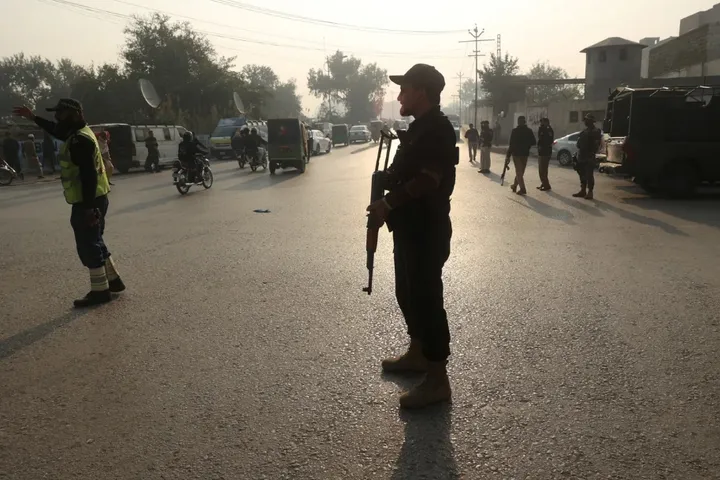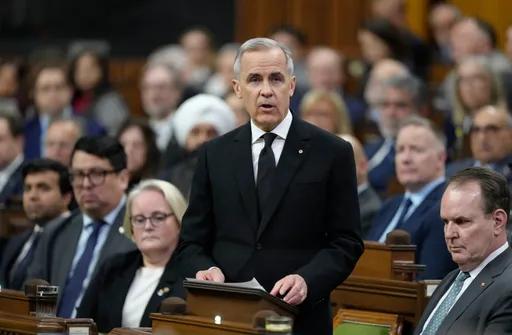Ever since Israel’s war on besieged Gaza began, Israeli leadership has made conflicting statements about the ultimate fate of the Palestinian enclave once the war is over, leaving everyone guessing over what Tel Aviv’s endgame could be.
On November 7, Prime Minister Benjamin Netanyahu said "Israel will, for an indefinite period, have the overall security responsibility[ of Gaza]." Three days later, he said his country does not intend to "occupy" or govern Gaza, but the enclave must be "demilitarised, deradicalised and rebuilt".
On December 16, Netanyahu maintained, "I will not allow us to replace Hamastan with Fatahstan [in Gaza]", in a clear snub to its major ally the United States, which backs the return of a "revamped" Palestinian Authority in Gaza once Israel ends its aggression there and the two-state solution to Middle East’s decades-old conflict.
The extremist ministers in Netanyahu’s far–right government, meanwhile, continue to call for reoccupying Gaza, and Hamas, which governs Gaza, says any future plan that leaves out the Palestinian resistance group is "delusion."
TRT World spoke with two experts — a former senior official at the Israeli Ministry for Strategic Affairs, and a former UN Special Rapporteur for human rights in the occupied Palestinian territory — to understand what political, security and administrative changes can be expected once Israel ends its war on Gaza.
"Israel will not govern Gaza," Kobi Michael, who served as the deputy director general and head of the Palestinian desk at the Israeli Ministry for Strategic Affairs, told TRT World.
He said that a trusteeship made of Arab countries, including Egypt, Jordan, UAE and Saudi Arabia — along with some Western countries like the UK, France, Germany and the United States, should govern the blockaded enclave after the war is over.
"Meanwhile, a new Palestinian Authority should be reconstructed in the West Bank and run daily life for the Palestinians there," Michael said, adding "Maybe in, I don't know, five, six years from today, these two entities, the Gaza Strip, and the West Bank, could be reunified as one political entity, not one geographical entity."
Michael, who is a senior researcher at the Tel Aviv-based Institute for National Security Studies, said he does not see any probability in the future that Israel will allow a "geographical connection between Gaza and West Bank through Israel."
With the political reunification of besieged Gaza and the occupied West Bank, a Palestinian state or confederation could be established later in the future, he said, but the focus should be on the construction of a new Palestinian leadership.
Collective punishment
Israel's war on Gaza — now in its 73rd day — has left at least 19,453 Palestinians dead, including 7,729 children, and wounded more than 52,286 others. Thousands of Palestinians are feared buried under the rubble of concrete and mangled steel of flattened buildings. The UN says the war has displaced most of the tiny coastal territory's 2.3 million population and starvation has hit the blockaded region amid winter’s chills.
The war began when Hamas conducted an unprecedented blitz on October 7 on Israeli settlements and towns near the separation fence with Gaza.
Hamas says its attack that surprised its arch-enemy was orchestrated in response to Israeli attacks on Al Aqsa Mosque, illegal settler violence in the occupied West Bank and to put Palestine question "back on the table."
In an assault of startling breadth, Hamas gunmen rolled into as many as 22 locations outside Gaza, including towns and other communities as far as 24 kilometres from the Gaza fence, killing 1,139 Israelis. In some places, they are said to have gunned down 373 soldiers as Israel's military scrambled to muster a response.
And upon return to Gaza, they also took along some 240 hostages, including Israeli military personnel and civilians. Dozens of the captives were later exchanged for Palestinians incarcerated in Israeli dungeons.
Since then, Israel has heavily and indiscriminately bombarded Gaza from air, land and sea, and is now expecting to control the territory if it manages to defeat Hamas, whose fighters have killed some 129 Israeli soldiers and claimed to have destroyed scores of Israeli tanks and armoured vehicles. The group still holds some 140 Israeli captives and often airs videos showing their actions against invading Israeli tanks and infantry.
As fighting continues in its third month, any Israeli "security role" in Gaza, experts say, will be seen by the Palestinians and much of the global community as a form of military occupation.
Permanent deployment of Israeli troops
Israel won't be able to "eradicate" Hamas from Gaza because it will not likely want to leave troops in the enclave, Michael Lynk, who served as the United Nations Special Rapporteur for human rights in the occupied Palestinian territory from 2016 to 2022, told TRT World.
"The longer it stays, the more precarious the security of its troops becomes," Lynk said.
A second Nakba, or mass displacement like the one in 1948 — which was what Israel aimed to realise — has not materialised because Arab and other regional states have refused to receive Palestinians, seeing it as treason to the Palestinian cause, Abdullah Agar, a Turkish military analyst told TRT World in an interview last month.
"No regional power wants to be part of a plan of emptying Palestine of Palestinians," Agar said.
Lynk said while Western countries could play a role in Gaza after the war, especially on the humanitarian side, their participation in reconstructing the enclave could lead to other tensions in the region.
"The US and the West will likely provide immediate humanitarian aid to Gaza through UN agencies, but they will look to the Arab Gulf to provide much of the funding for Gaza’s reconstruction," Lynk said.
"This will be a high point of tension between the US and the Arab Gulf, who will be wondering why they should pay the bill for Israel's destruction of Gaza."
"Ultimately, it will almost certainly fall in the lap of the United Nations to oversee the physical reconstruction of Gaza," he said, adding that no Arab or Muslim nation would be willing to provide governance or security there because that might be seen as an "extension" to the US there.
Saying the destruction in besieged Gaza mirrors scenes in Syria's Raqqa and Iraq's Fallujah, Michael said that the reconstruction of the enclave is going to be a very lengthy and costly process.
"It will take years and many years to reconstruct the Gaza" he said, adding that the trusteeship will be responsible for the reconstruction process.
"We are talking about a very heavy complex process, a very costly process, and people have to live under very, very inconvenient conditions for a very long period of time," he said.
No peace prospects
Israel pulled back troops and illegal settlers from Gaza in 2005 but kept a harsh blockade over its airspace, coastline, population registry and border crossings, except one into Egypt.
The blockade saw Israel prohibiting the entry into Gaza of items such as coriander, jam, chocolate, french fries, dried fruit, fabrics, notebooks, empty flower pots, toys and even wedding dresses.
Hamas took over the coastal territory from the Palestinian Authority in 2007, after being blocked from exercising real power despite winning a legitimate parliamentary election the previous year. Since then, Israel and Egypt have imposed a crippling blockade on Gaza to varying degrees.
The ongoing war on Gaza may have renewed the global interest in quickly achieving the two-state solution to Israel’s occupation of Palestinian lands, but Israeli officials have lately shown no interest in the two-state solution. In fact PM Netanyahu has boasted that he had blocked the creation of the Palestinian state during his more than 16 years in office, provoking former US ambassador to Israel Martin Indyk to accuse Netanyahu of lying to world leaders all these years.
"So all those promises to world leaders about his commitment to a two-state solution were a bunch of lies. And all those enablers who swore Bibi was serious about peace have some explaining to do," Indyk said.
With Israel ruled by the most extremist government in its history and its position on Palestine hardening everyday, finding peace in the Middle East remains a challenge.
"Peace might be realised only when a new Palestinian leadership that will be much more responsible, accountable and devoted to the establishment of an independent functioning Palestinian state will be there on the ground," said Michael of the Institute for National Security Studies.
Lynk, the ex-UN expert, however, sees no realistic prospects of genuine peace between Israel and Palestine after the war ends.
"There is great opposition across the Israeli Jewish political spectrum to a genuine Palestinian state," he said.
"And the Biden administration will not want to invest very much political capital in putting the pressure necessary on Israel to withdraw from the occupied Palestinian territory, particularly in a presidential election year."























